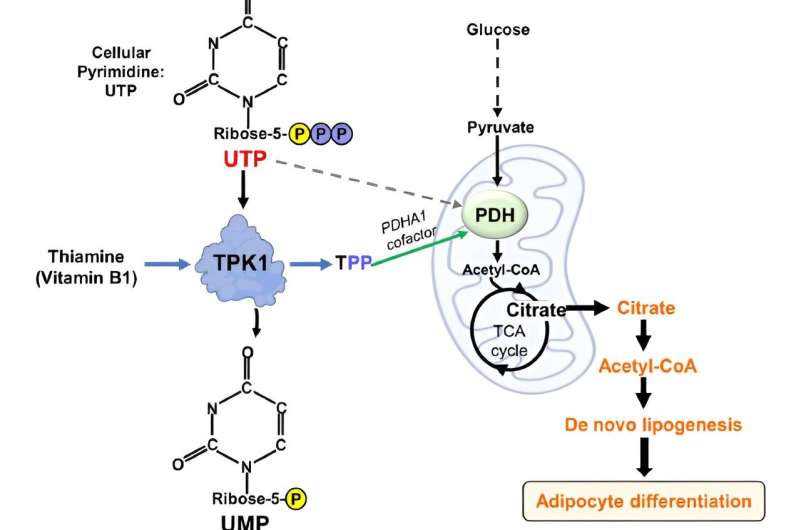Investigators led by Issam Ben-Sahra, Ph.D., associate professor of Biochemistry and Molecular Genetics, have discovered how cellular metabolism fluctuates in response to changes in levels of pyrimidines, metabolites used by cells to make DNA and RNA, according to a study published in Science.
In the study, the investigators used metabolomics and CRISPR-Cas9 genome editing to target and inhibit pyrimidine synthesis in human cervical cancer cells from the HeLa cell line. They discovered that decreasing pyrimidine levels in the cells also decreased glucose oxidation, the cell’s ability to break down glucose in the mitochondria and process it into ATP, which is used as energy by the cell.
“When we eat food, glucose enters the cells and is oxidized by mitochondria through the Krebs cycle, which is essential to metabolize glucose. We discovered an unknown role of pyrimidines in that they are required to maintain that glucose oxidation process,” Ben-Sahra said.
Specifically, the scientists found that pyrimidines maintain the activity of an enzyme called pyruvate dehydrogenase, which supports the Krebs cycle in releasing energy stored in nutrients, and also the cell’s ability to create lipids through the differentiation of preadipocytes.
“We show that pyrimidines are required to maintain the differentiation of these stem cell-like fat cells called preadipocytes into fat cells. So, if you decrease pyrimidine synthesis, you will decrease the ability of these cells to make fat cells,” Ben-Sahra said.
According to Ben-Sahra, the findings may help inform new therapeutic strategies that target pyrimidine synthesis in human cells with the goal of decreasing the abundance of fat cells and excess adipose tissue, which can contribute to poor health outcomes and the development of metabolic disease.
Previous work has also shown that inhibiting pyrimidine synthesis may help decrease tumor growth, and pyrimidine synthesis inhibitors are currently being tested in clinical trials for cancer treatment, Ben-Sahra added.
“Retrospectively, it would be interesting to see whether patients who are given these inhibitors to fight cancer may also have a decrease in weight,” he said.
Umakant Sahu, Ph.D., and Elodie Villa, Ph.D., both postdoctoral fellows in the Ben-Sahra laboratory, were co-first authors of the study.
More information:
Umakant Sahu et al, Pyrimidines maintain mitochondrial pyruvate oxidation to support de novo lipogenesis, Science (2024). DOI: 10.1126/science.adh2771
Provided by
Northwestern University
Citation:
Novel role for metabolites in cellular metabolism discovered (2024, March 29)
retrieved 29 March 2024
from https://phys.org/news/2024-03-role-metabolites-cellular-metabolism.html
This document is subject to copyright. Apart from any fair dealing for the purpose of private study or research, no
part may be reproduced without the written permission. The content is provided for information purposes only.


